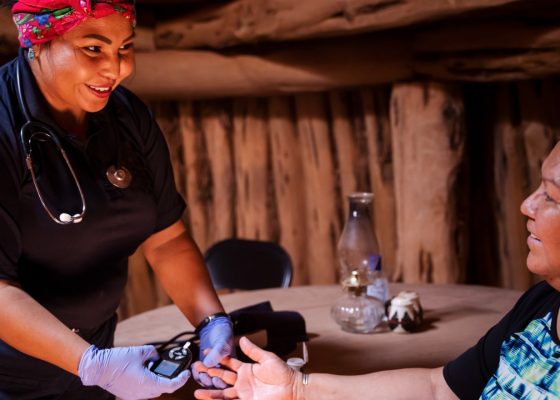Alice Springs Hospital’s intensive care unit is piloting a program to improve patient and family experiences during moments of critical stress.
Alice Springs Hospital’s intensive care unit is the vanguard site for a new study which aims to improve patient outcomes, particularly in vulnerable populations such as Aboriginal and Torres Strait Islanders.
The Patient Reported Outcome and Experience Measures pilot project is testing the feasibility of a bi-national plan to collect patient feedback through sending an automated text message to a mobile phone or email address. The message received will contain a link to access a survey.
Adult patients discharged from the ICU, as well as their nominated contact (carer/family member), will each receive an invitation to one of two different surveys.
Dr Paul Secombe, director of the Alice Springs ICU, told HSD the remote site was the perfect place to start the pilot program.
“We are arguably the most remote ICU in the country,” he said. “It’s 1500km to the next nearest tertiary centre.
“If we can do this here, it can be done anywhere.”
Dr Secombe said the case mix at Alice Springs ICU was 60-70% First Nations patients.
“Many of our patients are coming from terrible circumstances of socioeconomic disadvantage, and the effects of social determinants of health are well documented.
“For these vulnerable groups patient-reported outcome measures and family-reported experiences are very important.
“Culturally safe care is absolutely critical here,” he said. “It’s incredibly important for us to make it a better and safer experience.”
Collection of data has already begun at Alice Springs and two other sites in WA – at Fiona Stanley Hospital, and St John of God Private Hospital, both in Perth.
“We have never had a real understanding of what happens after people leave the ICU,” said Dr Secombe.
“We know whether they live or die, but quality of life is very important.
“This is a two-pronged project. We want to find out about the functional capacity and quality of life of patients three months after discharge.
“And we want to ask family members about things like whether they felt supported by staff in the ICU, whether visiting hours were appropriate for their needs, was the waiting room appropriately functional, was the communication from staff pitched at the right level to make them feel supported.”
Twenty more ICUs across the country will become involved and after six months of data collection there will be an assessment of how to roll out the project across Australia and New Zealand.
“This is about the way we can deliver intensive care in a way that puts the patient’s voice at the centre of that care,” said Dr Secombe.
For more information about the PROEMS study, visit the Australian and New Zealand Intensive Care Society website.
Do you have a story tip for us, or a topic you would like to see us cover? Contact the editor at editor@healthservicesdaily.com.au.




